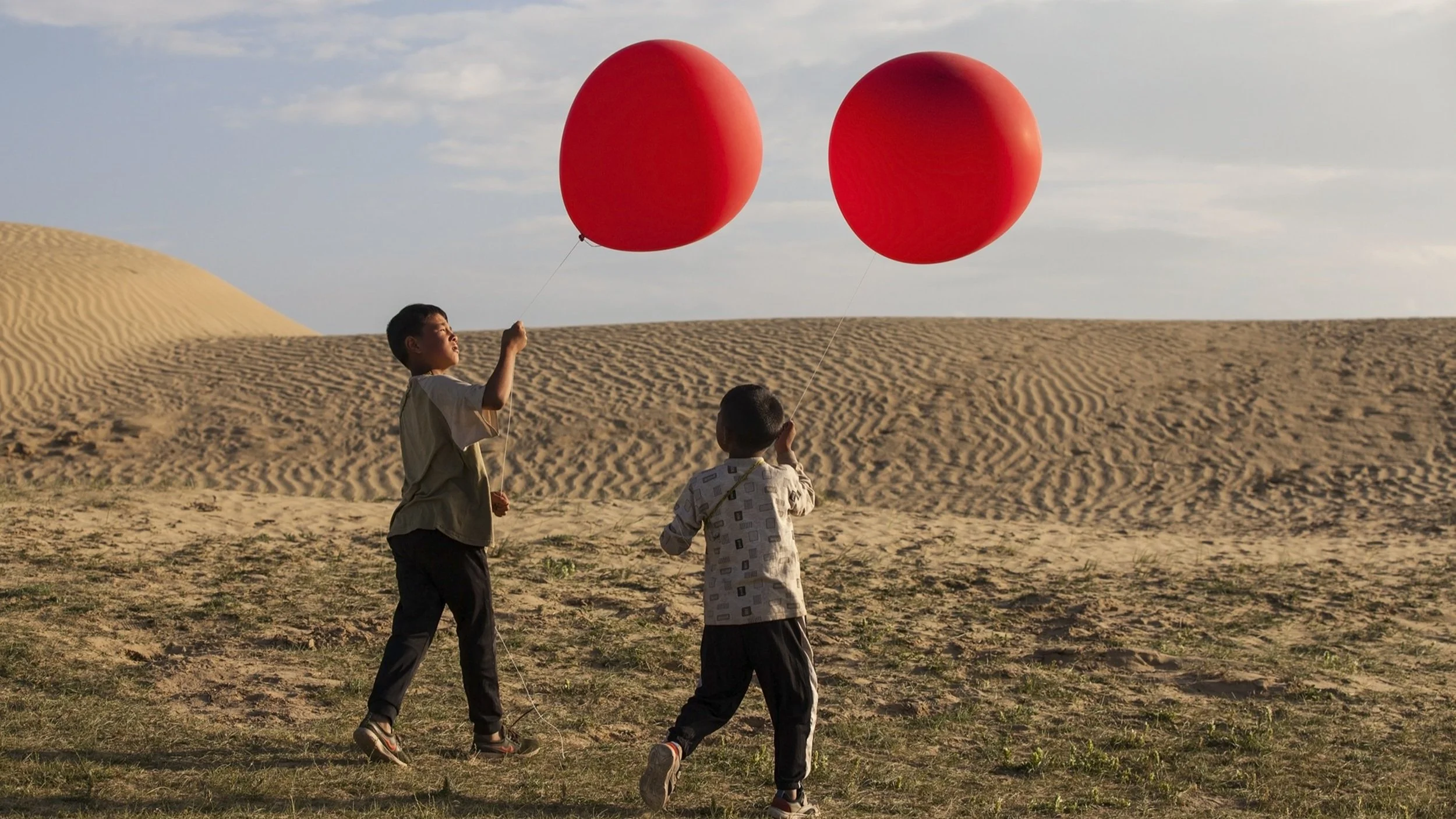Balloon
The two-child policy in China is confronted in a humane, distinguished drama from Tibet.
Balloon is billed as a film from China, but the significant fact about it is that its writer/director Pema Tseden comes from Tibet and that the film is set in that region. The plains of Qinghai are home to Dargye (Jinpa) and his family who live on a sheep farm there and the film looks at the situation that faces them in the early 1980s. That was a time when posters were all around proclaiming the birth control requirements imposed by the Chinese government. These are a strong concern for this family since Dargye and his wife Drolkar (Sonam Wangmo) already have three children and are struggling to find the money to give their eldest son, Jamyang (Dudul), an education because they recognise the importance of him having that. Their other children are young brothers not yet of school age (Drukha Dorje and Palden Nyrma) and at the outset the film shows a scene which has a comic tone since it shows these two kids blowing up condoms belonging to their parents having mistaken them for balloons. But there is nothing comic about the consequences when, having no other contraceptives to hand, Drolkar finds herself pregnant again. Out of this situation two conflicts will arise.
Balloon is certainly a film about a family, but at the same time it is concerned with the wider issues that derive from the clashes between traditional attitudes and new ways of life as widely experienced by ordinary people in Tibet. When Dargye’s father (Konchok) dies, the family want Drolkar to give birth because they believe that the dead man will be reincarnated in the new baby. But to have another child would lead to a fine being imposed by law and there is also the separate question of how content Drolkar is with her lot. She has a sister (Yangshik Tso) who had chosen to become a nun consequent on a relationship with a married teacher (Kunde) who had let her down. During a visit from her sister, Drolkar starts to question the extent to which her marriage to a sexually-demanding husband with traditional patriarchal attitudes is really the best life for her.
For British viewers Balloon is a rare chance to see a film about the lives of Tibetans made by an insider. It is also a welcome opportunity to see the work of Pema Tseden who is self-evidently a very distinguished filmmaker. Aided by a first-rate cast, he has created a film which gains much by being so directly comparable to the family tales told by the great Japanese director Yasujirō Ozu. The humorous scenes featuring the two young brothers strongly echo children in Ozu’s work, but the similarity goes much further than that. The way in which the family portrait smacks of everyday life rather than any contrived drama is identical and so is the sense that we are watching not actors but real people. In contrast to Ozu, Balloon often favours a roving camera but it works well and there’s only one uncomfortable scene which makes one wish that hand-held work had been avoided.
If for most of the time Balloon plays as a wholly realistic piece, there is one aspect that clashes with that. From time to time one finds images that are best described as dreamlike. You could regard them as reflections of Buddhist beliefs or you could think of them as moments of magic realism. Either way though, they struck me as distracting due to not fitting in naturally and, in addition, I found that the final scene of all, which may have been conceived as effectively symbolical, felt misjudged and again out of character. But these are minor points given that Balloon is deeply revealing about life in Tibet and contains filmmaking of exceptional distinction.
Original title: Qiqiu.
MANSEL STIMPSON
Cast: Jinpa, Sonam Wangmo, Yangshik Tso, Dudul, Drukha Dorje, Palden Nyrma, Kunde, Konchok, Dechen Yagzom, Kangchen Tsering, Namkar Gyal.
Dir Pema Tseden, Pro Huang Xufeng and Jacky Pang, Screenplay Pema Tseden, Ph Lu Songye, Art Dir Daktse Dundrup, Ed Liao Ching-Sung and Jin Di, Music Peyman Yazdanian.
Factory Gate Films/Mani Stone Pictures/iQIYI Pictures-Day for Night.
102 mins. China. 2019. Rel: 24 September 2021. Cert. 12A.


